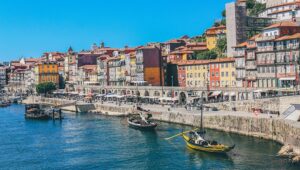Dear Editor,
Mr. Carl Munson merits praise for his perspicacious series of articles concerning the language and culture of Portugal which he avails to readers of the Resident through his Club.
The English and Portuguese languages both benefit and suffer from their Imperial history which has resulted in a diaspora of idioms, accents and peculiarities of expression which can cause bewilderment to native speakers and chaos in the comprehension of foreigners.
They are also fundamentally enclitic which makes learning grammatical construction by listening (especially to broadcast commentary) an almost futile exercise.
Carl Munson’s wise advice to absorb slowly by daily practice will help most students to pass beyond tourist-speak to expressing themselves in the many tenses and subtleties of meaning; especially so with the subjunctive which is essential for any discussion of cultural matters.
In such regions as central and west Africa, words from nearly 400 indigenous languages have been consolidated with colonial English to provide a lingua franca which enables Europeans to communicate in a friendly manner. This is known as Pidgin. For example, a restaurateur could be told “I wan chop” which means “I want to eat” and his cook would understand “Dey tear my belle” meaning “I am extremely hungry”.
This African form of Esperanto could well be adapted for the formulation of pidgin Portuguese. It would opportune an interesting combination for universal tourism especially in countries of the East where Pidgin was first initiated as a communication between merchants.
However, an alternative digital solution can be found in the adaptation of Douglas Adam’s yellow babel fish by the Google audio translator whereby buds, not fish, are inserted in the ear. In UN assembly style, 36 languages and 90 accents can be simultaneously (almost) translated.
I trust that this information may be of some use.
No Wahala = No problem
Roberto Cavaleiro
Tomar

























